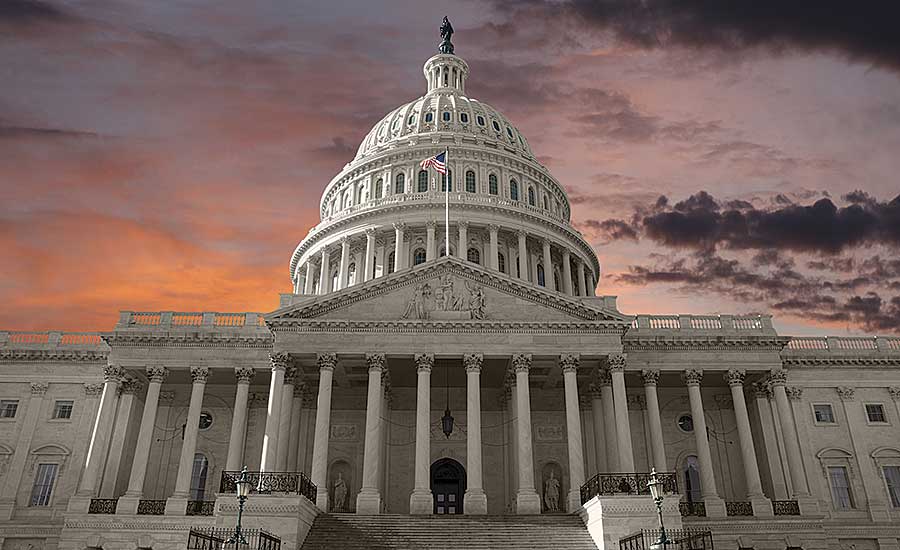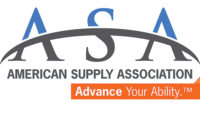From the ASA President

My No. 1 goal as 2020 ASA president is to drive ASA programs deeper into our member organizations so our members and their employees can “get in the game!” My strategy for accomplishing greater member engagement is to share success stories about how our members are getting benefits from ASA programs in their businesses.
At our Winter Leadership Meeting in Orlando, Florida earlier this year, there was agreement that advocacy is a vital function that ASA, as the industry’s trade association, is best suited to perform.
“Advocacy is one of the cornerstones of ASA,” First Supply Chairman and former ASA President Joe Poehling says. “No matter their size or how many people they employ, distributors, vendors and reps can all have a voice in Washington when we collectively support key programs and legislation that will impact our industry.”
Mid-City Supply President Jeff New, the chairman of ASA’s Government Affairs Committee, feels advocacy fulfills a strong sense of purpose. “It is our duty as members of an industry to leave it in better condition than when we entered it,” he says. “Advocacy is one way we can do that.”
Poehling agrees: “Participating in advocacy work has one of the most immediate impacts of anything you can do with ASA, and anyone can do it. Whether you attend the fly-in or simply send a letter to one of your representatives, your voice makes a difference. ASA supports bipartisan candidates and issues most of all, ensuring our voice is strong and clear for the good of the industry.”
The numbers show ASA members are getting more involved in the association’s advocacy efforts. Ayesha Salman, ASA’s business intelligence analyst, reports almost 100 ASA-member companies are now actively involved with advocacy initiatives this year, and of those, 80 have increased their involvement the past three years. In fact, this year shows a more than 150% increase in member engagement for advocacy, and a whopping 500% increase from three years ago.
Earlier this year, ASA hired Steve Rossi as the association’s new government affairs director, a role he has embraced with gusto. “ASA already has a lot to be proud of when it comes to advocacy in 2020,” he says. “After heeding the advice of our members at the winter meeting in February, we have rebuilt our government affairs and PAC channels to provide greater value and strengthen our industry’s voice at both the federal and state levels.”
ASA ADVOCACY EFFORTS DURING THE PANDEMIC
The importance of getting involved in the political process has been a major topic of discussion this year. “Not only have we witnessed the impact health and safety can have on our industry, but we witnessed the impact government can have on our businesses,” Texas Plumbing Supply CEO Glenn Fuller says. “This reinforced to me the importance of having a strong advocacy mechanism in our industry. ASA’s government affairs office is the only advocacy group the PHCP industry has watching out for our interests in Washington, D.C., and around the country. They are constantly monitoring and reacting to issues that affect each of us.”
At the onset of the pandemic, ASA quickly took action, urging the federal government to include the PHCP-PVF industry as essential.
When more than 1,800 ASA member advocates, Rossi notes, sent more than 7,300 letters to their congressional representatives, senators and the White House, the Department of Homeland Security included the PHCP-PVF industry as essential in its national recommendations to states confronting the pandemic.
Rossi adds that as states implemented their own interpretations as to what constituted an essential industry, ASA again took swift action and activated its membership; more than 500 letters were sent to legislators.
ASA advocacy efforts impact both distributors and manufacturers. “I feel ASA provides an excellent level of representation,” Watts Codes and Standards Manager Chris Haldiman says. “We have been supported by Jim Kendzel (ASA’s codes and standards director), an active and extremely knowledgeable person.”
Kendzel has been instrumental in directing ASA’s participation in standards activities impacting plumbing products, ensuring any state or federal jurisdiction looking to adopt the new requirements of NSF/ANSI 61 use the manufactured date referenced in the standard, and not create a sell-by compliance date that could lead to a significant economic loss to our members throughout the discarding of inventory.
Recently, another California lead-free initiative was thwarted thanks to the help of ASA members writing letters to stop this initiative. Prior to ASA and its members actively opposing California AB 2060, the bill was poised to pass easily since there had not been any active opposition to the bill. However, thanks to ASA’s unrelenting advocacy push at the national, state and local levels on behalf of its members, and more importantly, the engagement of ASA’s California distributor members writing 2,400 letters to all 40 state senators in opposing the bill, AB 2060 never gained enough momentum for a floor vote, failing in committee on Sept. 1.
Another way members can support the advocacy effort is through the ASA Political Action Committee. The ASA PAC is the “vehicle” we use to support candidates for the Senate and House of Representatives. “Your donation is the ‘fuel’ required to keep the PAC going,” Fuller says.
Fuller explains that supporting the advocacy effort is vital and crosses party lines in that the PAC does not support a specific party. “During this election year, vast differences have surfaced in both parties,” he says. “We must support candidates on both sides of the aisle that will help protect our industry.”
New further emphasizes the value of participating in ASA fly-ins where association members visit with their congressional representatives and senators.
“What first got me involved was when I heard someone say, ‘Your congressman needs to hear from you because you can bet for certain he’s hearing from the labor unions and all the environmentalists,’” he says. “Our voice needs to be heard. Politicians need to hear how what they do affects our businesses, customers and employees. They can’t get information from the media or the pollsters. We are not the only ones who can do that, but we can do it the most effectively. Advocacy is important. It is up to us to represent ourselves, and our industry in Washington. Besides, that, it’s fun.”
Looking for a reprint of this article?
From high-res PDFs to custom plaques, order your copy today!





